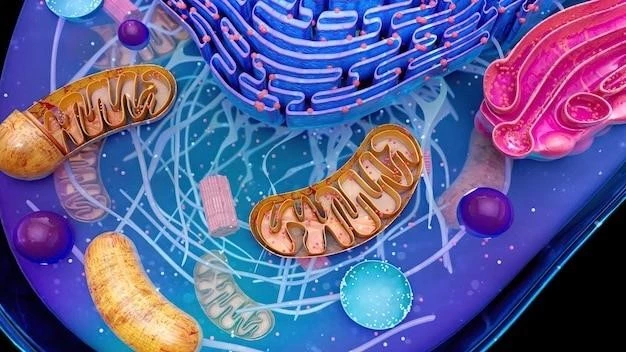Inborn Renal Aminoaciduria
When delving into the complexities of Inborn Renal Aminoaciduria, it is crucial to understand the impacts of genetic mutations on amino acid transporters within renal tubules. Exploring the connection between aminoacid metabolism, kidney function, and metabolic abnormalities is key. Diagnosing this inherited condition involves urine and blood tests, while treatment options focus on managing kidney disease and renal disorders.
Understanding Inborn Renal Aminoaciduria
Inborn Renal Aminoaciduria is a rare genetic disorder that affects the normal functioning of amino acid transporters in renal tubules. This condition leads to abnormal levels of amino acids in the urine due to impaired reabsorption by the kidneys. Patients with Inborn Renal Aminoaciduria may experience metabolic abnormalities and kidney dysfunction. Understanding the impact of genetic mutations on these amino acid transporters is crucial for diagnosis and management.
Individuals with this condition often exhibit symptoms such as excessive amino acids in the urine, developmental delays, growth retardation, and renal impairment. The disruption in amino acid metabolism can have far-reaching consequences on overall health.
Diagnosis of Inborn Renal Aminoaciduria typically involves urine tests to assess amino acid levels and blood tests to evaluate kidney function. Identifying specific genetic mutations associated with amino acid transporter abnormalities can help confirm the diagnosis.
It is important for healthcare providers to be aware of the intricacies of this inherited condition to provide appropriate treatment and support. Stay informed about the latest research and advancements in managing Inborn Renal Aminoaciduria to ensure optimal care for affected individuals.
Diagnosis of Inborn Renal Aminoaciduria
Diagnosing Inborn Renal Aminoaciduria involves a comprehensive approach that includes urine tests to analyze amino acid levels and blood tests to assess kidney function. These tests are vital in identifying the specific amino acid transporters affected and confirming the presence of metabolic abnormalities.
Healthcare providers may also look for clinical signs such as developmental delays, failure to thrive, and kidney dysfunction when considering a diagnosis of Inborn Renal Aminoaciduria. Genetic testing plays a crucial role in identifying the underlying genetic mutations responsible for the condition.
It is essential for individuals with suspected Inborn Renal Aminoaciduria to undergo thorough testing and evaluation by healthcare professionals specialized in metabolic disorders. Early and accurate diagnosis is key to initiating appropriate treatment and management strategies to improve patient outcomes and quality of life.
Mechanisms of Inborn Renal Aminoaciduria
Inborn Renal Aminoaciduria arises from genetic mutations affecting specific amino acid transporters in the kidney’s renal tubules. These mutations disrupt the normal reabsorption of amino acids, leading to increased excretion of amino acids in the urine. As a result, individuals with this condition experience metabolic abnormalities and renal dysfunction.
The impaired function of amino acid transporters hinders the kidney’s ability to maintain optimal amino acid levels in the body, contributing to the characteristic features of Inborn Renal Aminoaciduria. Understanding the molecular mechanisms behind these genetic mutations is crucial in elucidating the pathophysiology of the disorder and developing targeted treatment approaches.
Researchers continue to investigate the intricate interplay between genetic factors, amino acid metabolism, and kidney function in individuals with Inborn Renal Aminoaciduria. By unraveling the underlying mechanisms driving this inherited condition, advancements in diagnosis, treatment, and management strategies can be achieved to enhance patient care and outcomes.

Treatment Options for Inborn Renal Aminoaciduria
Managing Inborn Renal Aminoaciduria involves a multidisciplinary approach aimed at addressing the metabolic abnormalities and kidney dysfunction associated with the condition. While there is no cure for this inherited disorder, treatment strategies focus on alleviating symptoms, optimizing kidney function, and supporting overall health.
Patients with Inborn Renal Aminoaciduria may benefit from dietary modifications tailored to their specific amino acid imbalances. Working closely with a registered dietitian can help ensure adequate nutrition while managing amino acid levels in the body.
Medical interventions such as medications to regulate amino acid levels and support kidney function may be prescribed by healthcare providers. Regular monitoring of kidney function, growth parameters, and metabolic status is essential to track disease progression and treatment efficacy.
In severe cases, individuals with Inborn Renal Aminoaciduria may require advanced interventions such as renal replacement therapy to manage end-stage kidney disease. Collaborating with nephrologists and genetic specialists can help determine the most suitable treatment options for each patient’s unique needs.
Prognosis and Long-Term Management
Understanding the prognosis of Inborn Renal Aminoaciduria is essential for long-term management planning. While this genetic disorder poses challenges in kidney function and metabolic balance, early diagnosis and timely intervention can improve outcomes and quality of life.
Individuals with Inborn Renal Aminoaciduria require lifelong monitoring and treatment to mitigate complications and optimize renal health. Long-term management strategies may include regular follow-up visits with healthcare providers, ongoing dietary adjustments, and adherence to prescribed medications.
Prognosis varies depending on the severity of symptoms, response to treatment, and individual factors. By partnering with a healthcare team experienced in managing metabolic disorders, patients with Inborn Renal Aminoaciduria can receive personalized care and support tailored to their specific needs.
Engaging in open communication with healthcare providers, staying informed about the latest research developments, and actively participating in treatment decisions are vital aspects of long-term management for individuals living with Inborn Renal Aminoaciduria. With proper care and monitoring, patients can lead fulfilling lives while effectively managing this complex genetic condition.
Research and Future Developments
Ongoing research efforts in the field of Inborn Renal Aminoaciduria hold promise for advancing our understanding of the underlying genetic mechanisms and developing innovative treatment options. Scientists are continuously exploring novel approaches to managing this rare inherited condition.
Future developments in the diagnosis and treatment of Inborn Renal Aminoaciduria may involve targeted therapies aimed at correcting specific genetic mutations affecting amino acid transporters in the kidneys. By unraveling the complexities of this disorder at the molecular level, researchers strive to enhance precision medicine strategies for personalized patient care.
Clinical trials and genetic studies play a crucial role in identifying potential therapeutic interventions and optimizing long-term outcomes for individuals with Inborn Renal Aminoaciduria. Collaborative research efforts between healthcare professionals, geneticists, and pharmaceutical companies are essential for driving progress in the field.
As advancements in genetic technology and treatment modalities continue to evolve, the future looks promising for individuals affected by Inborn Renal Aminoaciduria. Stay informed about the latest research findings and participate in clinical trials to contribute to the development of effective therapies and improve the overall management of this complex genetic disorder.
